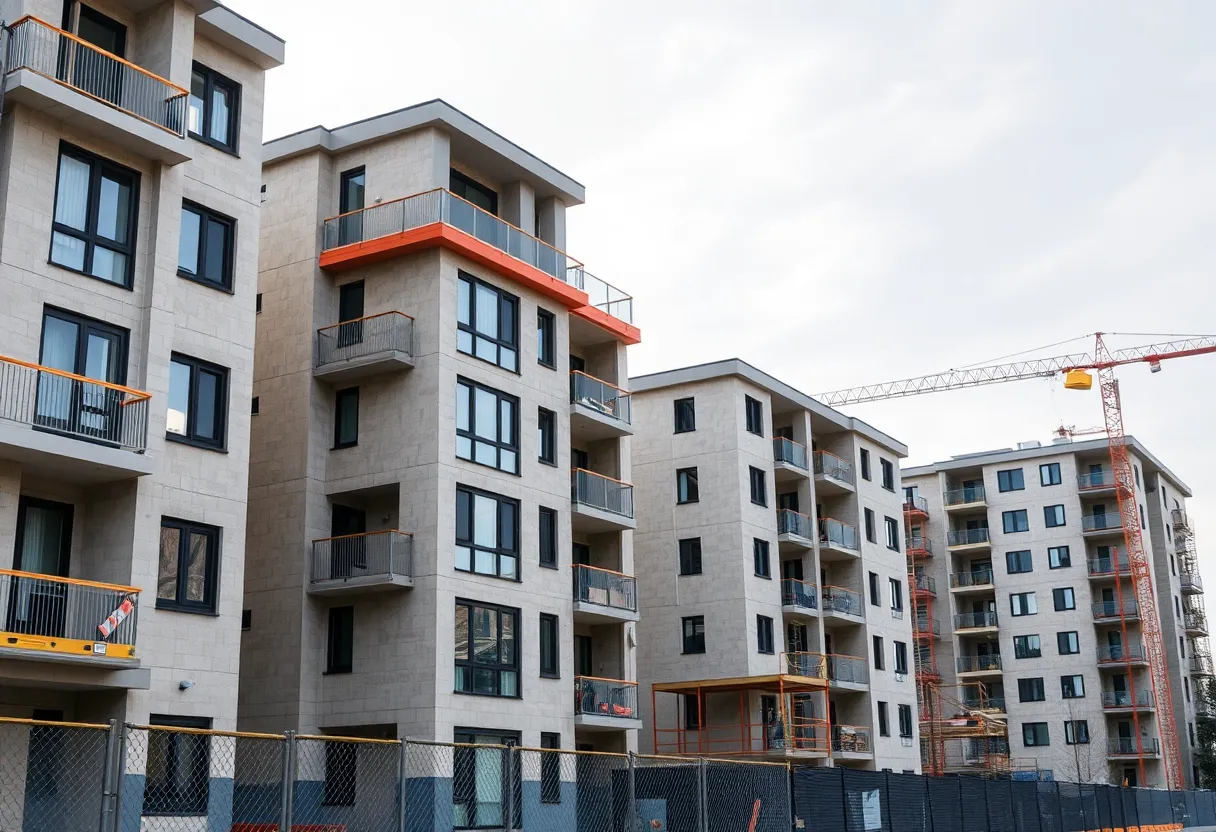News Summary
The UK government is set to introduce a Building Safety Levy for new residential developments starting in Autumn 2026. This initiative aims to improve safety standards following past tragedies, including the Grenfell Tower fire. The levy will affect major residential developments comprising at least 10 dwellings or 30 bedspaces for student accommodation. While the initiative aims to raise funds for building safety remediation, it may pose challenges for small and medium-sized developers who could struggle with the additional financial burden.
England Moves Closer to Implementing Building Safety Levy for New Residential Developments Starting October 2026
England is gearing up to implement a Building Safety Levy aimed at enhancing construction safety standards for new residential properties. The draft Building Safety Levy (England) Regulations 2025 have been submitted to Parliament, and if approved, the levy will affect new “major residential developments” beginning in Autumn 2026. This initiative is a direct response to safety concerns following the tragic Grenfell Tower fire, bringing significant implications for developers and future housing supply.
What You Need to Know About the Levy
The levy will apply to any new residential project that includes at least 10 new dwellings or 30 new bedspaces for purpose-built student accommodation. It is designed to generate funds that can be used to fix unsafe buildings across the country. Exemptions will be in place for specific types of developments including affordable housing, care homes, hotels, hospitals, and various forms of supported housing.
Charges Will Vary by Local Authority
The amount developers will need to pay as a levy will be based on the Gross Internal Area (GIA) of their projects. Rates will differ from one local authority to another, reflecting the average house prices in each region. Developers using brownfield sites—previously developed land—may benefit from a 50% reduction in levy rates, provided that at least 75% of the site qualifies as such.
Impact on Project Viability
While the aim of the levy is to protect and improve building safety, many developers are concerned that it could impede housing supply, especially for small and medium enterprises. The initial responses suggest that smaller developers may struggle to absorb the financial burden of the new charges, ultimately influencing project viability and delaying housing availability.
Submission Requirements and Governance
Developers will be required to submit specific information regarding their levy status during the building control application or initial notice phase. Local authorities will take charge of determining levy liabilities and collecting associated payments. It is crucial for developers to ensure accurate, detailed submissions, as errors could result in the rejection of their building control applications.
Refunds and Disputes
If a developer’s levy charge decreases after payment, they will be entitled to a refund, which will be processed within a two-week timeframe. However, the issuance of building control completion certificates will be contingent upon the full payment of the levy. Developers can challenge levy liability within 28 days of receiving a notice regarding their responsibility for payment.
Long-Term Financial Goals
The government aims to raise an estimated £3.4 billion over the next ten years through this levy. To ensure ongoing financial accountability, the levy rates will be reviewed every three years, and local authorities will be required to regularly report their revenue to the central government.
Future Developments in Scotland
In addition to the measures being introduced in England, a similar building safety levy is set to launch in Scotland on 1 April 2027. This reflects a broader commitment across the UK to improve construction safety standards in response to past tragedies.
Advice for Developers
Developers are strongly encouraged to begin submitting their building control applications soon to avoid being caught by the upcoming levy charges. The deadline for applications is approaching, and acting sooner rather than later could lead to significant financial advantages before the new regulations take effect.
Deeper Dive: News & Info About This Topic
Additional Resources
- Womble Bond Dickinson: Step Closer to Building Safety Levy
- Wikipedia: Building Safety in the United Kingdom
- Travers Smith: Building Safety Levy
- Google Search: Building Safety Levy
- Shoosmiths: Building Safety Levy Rates Confirmed
- Encyclopedia Britannica: Building Safety
- Pinsent Masons: New Building Safety Levy
- Google News: Residential Building Developments
- Charles Russell Speechlys: The Challenges of the Building Safety Levy
- Osborne Clarke: Building Safety Levy Delayed Rates Confirmed
Author: Construction CA News
The CALIFORNIA STAFF WRITER represents the experienced team at constructioncanews.com, your go-to source for actionable local news and information in California and beyond. Specializing in "news you can use," we cover essential topics like product reviews for personal and business needs, local business directories, politics, real estate trends, neighborhood insights, and state news affecting the area—with deep expertise drawn from years of dedicated reporting and strong community input, including local press releases and business updates. We deliver top reporting on high-value events such as the Rose Parade, Coachella, Comic-Con, and the California State Fair. Our coverage extends to key organizations like the California Building Industry Association and Associated General Contractors of California, plus leading businesses in technology and entertainment that power the local economy such as Apple and Alphabet. As part of the broader network, including constructionnynews.com, constructiontxnews.com, and constructionflnews.com, we provide comprehensive, credible insights into the dynamic landscape across multiple states.


